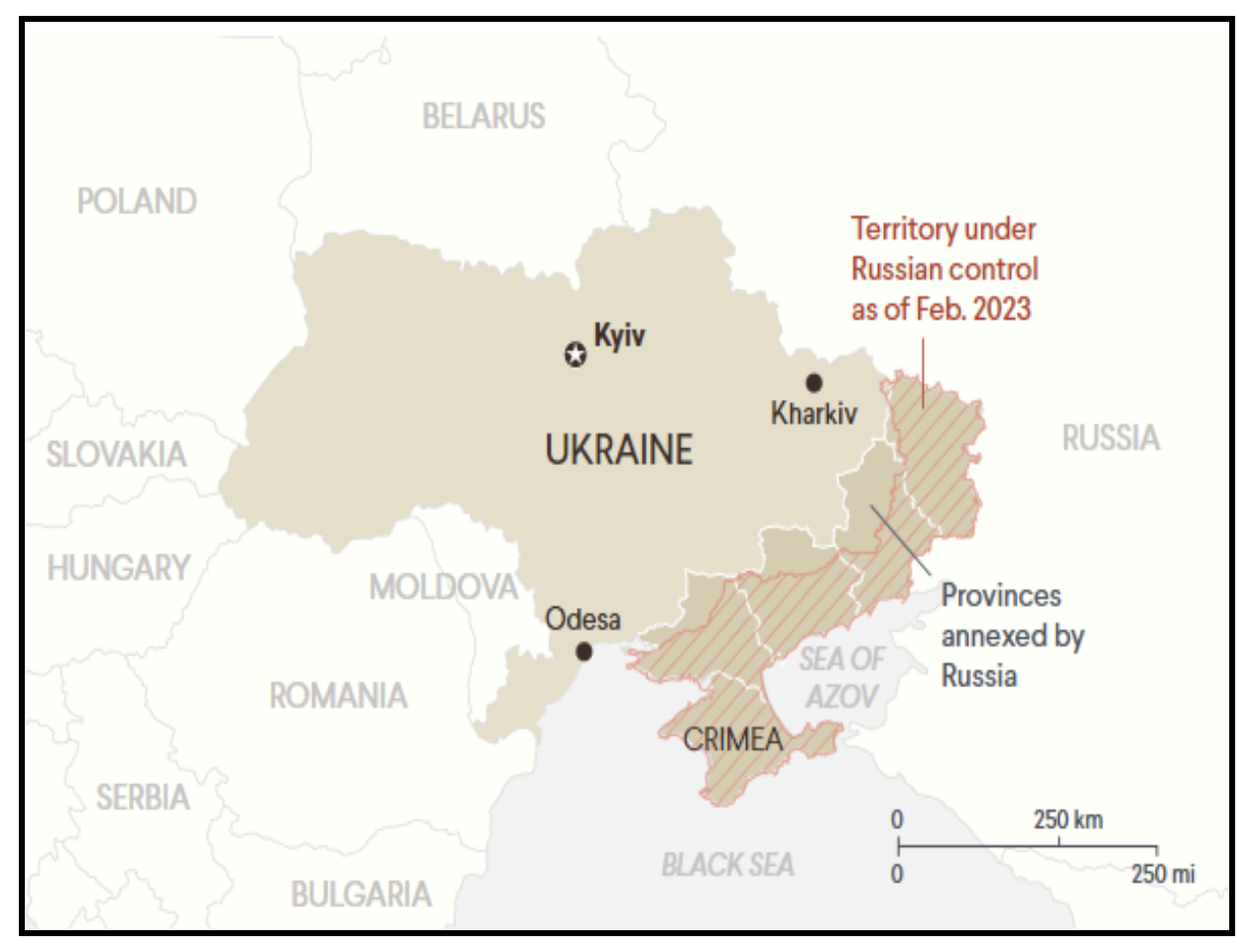News Excerpt:
The two-day Ukraine Peace Summit concluded on June 16 in Burgenstock, Switzerland.
Ukraine and Russia War
|

Support for Ukraine
- Switzerland managed to gather representatives from over 90 countries, including leaders from at least 56 nations.
- About 82 countries and organizations signed the final joint communiqué, with notable exceptions such as India.
The final joint communiqué
- The communiqué strongly condemned the “ongoing war of the Russian Federation against Ukraine” and emphasized sovereignty, territorial integrity, and adherence to international law.
- It highlighted three key areas of consensus:
-
- Nuclear safety
-
- Food security
- Exchange of all prisoners of war, as well as displaced and detained Ukrainians.
- However, the statement was relatively modest in its scope, as the organizers aimed to garner broad support, particularly from the Global South, which they achieved to some extent.
- Despite Ukrainian President Zelenskyy's praise of a "historic victory," there were notable drawbacks.
Drawbacks of Conference
- Switzerland's decision not to invite Russia, and to base their negotiations on the Ukraine Peace Formula and UN resolutions, made the gathering appear one-sided.
- The failure to secure even a delegation from China, which has significant influence over Moscow, was a setback.
- Additionally, the fact that no BRICS member, current or prospective, signed the statement indicates limited appeal among emerging economies.
India’s Stance
- India attended the Swiss conference but did not vote.
- Switzerland, Ukraine, and other Western countries made special efforts to gain India's support for the conference, including a last-minute appeal by President Zelenskyy to the Indian Prime Minister at the G-7 outreach summit in Italy.
- As a key Global South player and close partner of Russia, India's participation would have been a significant achievement for the organizers.
- However, while India sent its National Security Advisor to preparatory conferences in Jeddah and Davos, the Indian delegation at this summit was led by the Secretary (West) in the External Affairs Ministry.
- India has consistently abstained from resolutions at the UN, Security Council, International Atomic Energy Agency (IAEA), Human Rights Council, and other multilateral forums criticizing Russia's invasion of Ukraine.
- Although India may share concerns over much of the conference's text, it could not support its overtly anti-Russian stance.
Way Forward:
- By attending the conference without endorsing its outcome, India demonstrated a willingness to participate in the process, especially if it leads to a more inclusive future conference with both Russia and Ukraine present.
Important Articles on Russia and Ukraine War


